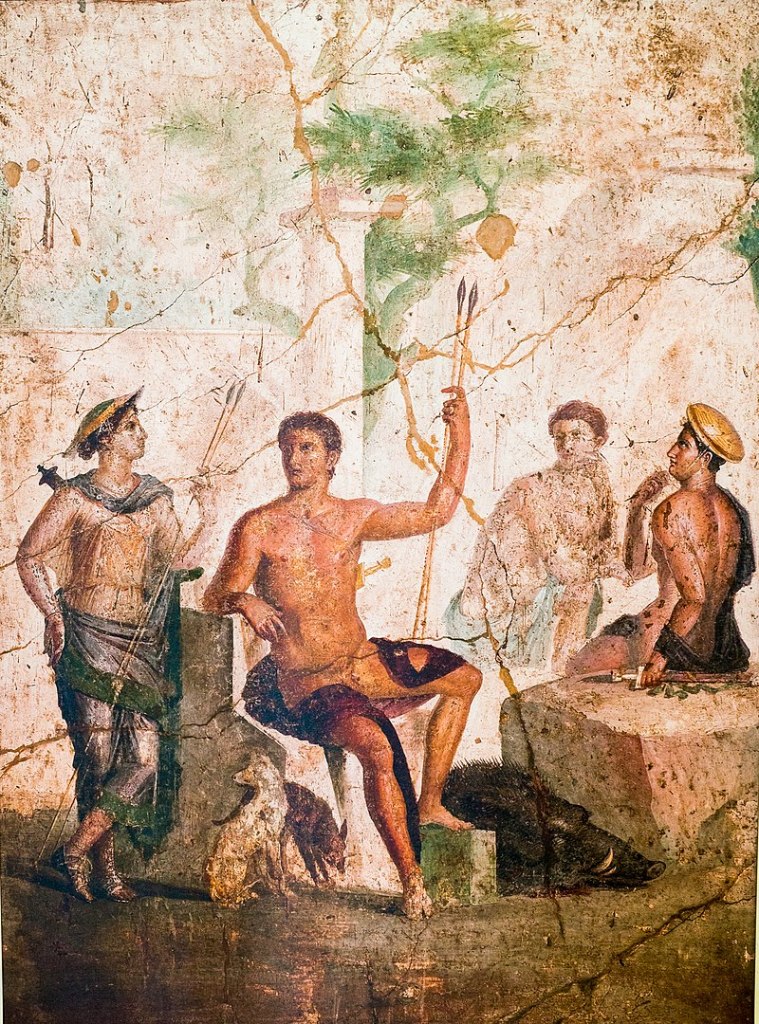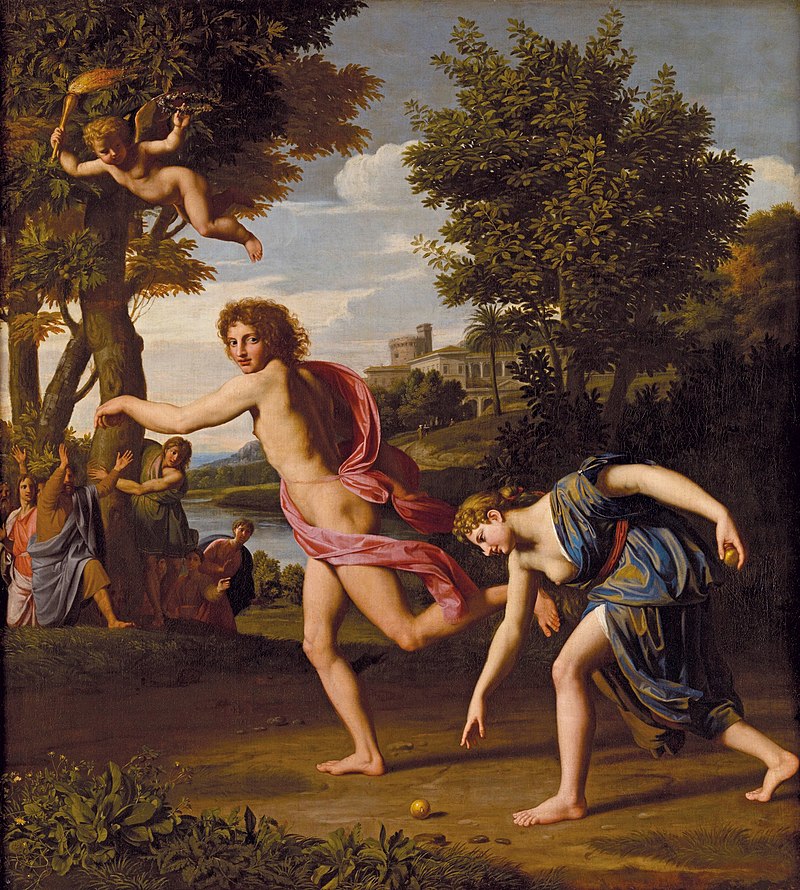Atalanta
This Arcadian heroine thrived in the wild, a huntress who ran with the wind and tracked prey with the keenness of a hawk. Her heart belonged to Artemis, the goddess of the hunt, and her skill with bow and arrow was legendary.

Parents: Iasus and Clymene
Consort: Hippomenes
Born not under a palace roof, but beneath the vast Arcadian sky, Atalanta’s story began with an act of abandonment. Her own father, for reasons lost to time, exposed her as a babe in the wilderness. Yet, fate wouldn’t let such a determined spirit perish. A she-bear, a powerful symbol of motherhood in the wild, became Atalanta’s unlikely caretaker, nurturing her with milk and, perhaps, a touch of ferocity. Eventually, hunters stumbled upon this extraordinary scene – a human child thriving under the care of a wild beast. They took Atalanta in, raising her not as a noblewoman, but as one of their own, teaching her the ways of the hunt. And so, Atalanta, raised by the wind and suckled by a bear, grew into a legend.
Adventures
Unlike most women of her time, she rejected marriage and vowed to protect her virginity. This fierce commitment was tested when Centaurs, wild half-man half-horse creatures, dared to invade her grove. Atalanta, with arrows that flew like fury, cut them down, a testament to her unwavering spirit.

Her legend grew when she joined the Argonauts on their epic voyage. Even amongst these mighty heroes, Atalanta stood out. At the funeral games for King Pelias, she entered a wrestling match, not against another woman, but against the hero Peleus, and emerged victorious. This wasn’t just a display of strength; it was a challenge to the status quo, a woman proving her worth in a man’s world.
Her bravery extended beyond games. When King Oeneus faced a monstrous threat – the Calydonian Boar – Atalanta answered the call. She wasn’t there for glory or a prince’s hand; she was there to test her skills against a worthy opponent. And in the ensuing hunt, it was Atalanta who drew first blood, etching her name in the legend of the beast’s demise.

However, victory often comes with a price. When the spoils were divided, Meleager, a hero who played a key role in slaying the boar, recognized Atalanta’s contribution and awarded her the prized boar skin. But this decision sparked outrage from his uncles, who believed a woman shouldn’t receive such a trophy. Blinded by their pride, they tried to steal it from her. Meleager, enraged by this insult to both Atalanta and his own judgment, defended her honor and slew his uncles in a bloody confrontation.
The Golden Apples
Even the most independent spirits yearn for connection. Atalanta, after a lifetime of carving her own path, eventually found herself reunited with her estranged father, Iasus. He, bound by societal expectations, pressured her to marry. Atalanta, ever the defiant one, agreed under a condition – her suitors would have to race her, and the losers would face death. Many young men, lured by the challenge or perhaps the thrill of defying the odds, perished in this deadly race.

Then came Hippomenes, a cunning contender who sought the aid of Aphrodite, the goddess of love. With a mischievous glint in her eye, Aphrodite provided him with three golden apples, imbued with an otherworldly allure. As the race began, neck and neck they ran. But then, Hippomenes, with a strategic flourish, tossed the golden apples one by one. Atalanta, unable to resist their brilliance, stooped to pick them up, each time breaking her stride. This momentary lapse allowed Hippomenes to surge forward, claiming victory and Atalanta’s hand in marriage.
Their triumph, however, was short-lived. Blinded by their own success, Hippomenes failed to show proper gratitude to Aphrodite, who had played a crucial role in his victory. The vengeful goddess, scorned for being overlooked, unleashed a terrible curse. Overcome by an insatiable lust, Hippomenes and Atalanta found themselves violating the sacred precinct of Rhea, a transgression that angered the goddess. As punishment, they were transformed into lions, forever bound to the wild, a constant reminder of the price of neglecting divine favors and the fleeting nature of human victory.
